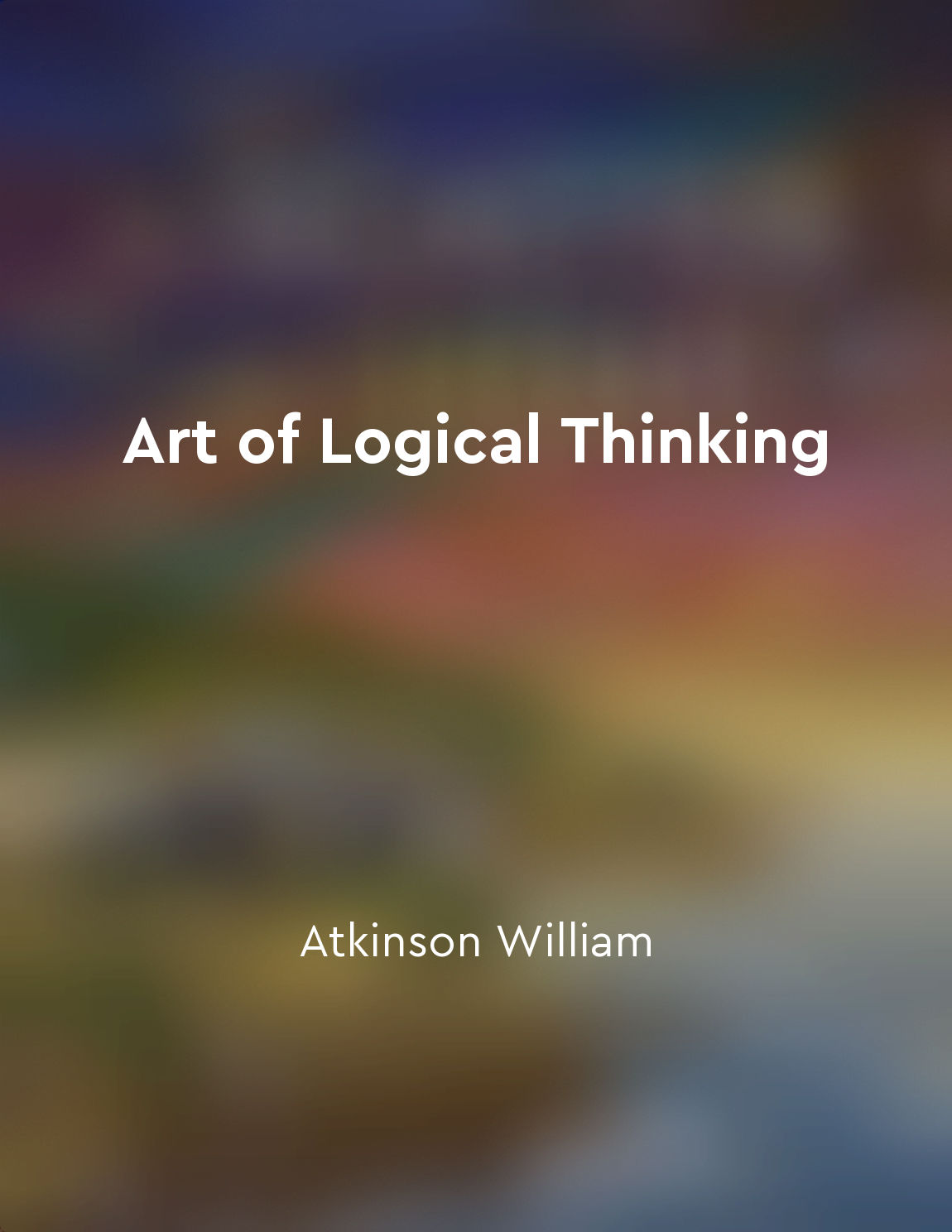Audio available in app
Invalid arguments contain logical errors from "summary" of Art of Logical Thinking by Atkinson William
Invalid arguments, by their very nature, are riddled with logical errors that render them ineffective in persuading others. These errors can take various forms, such as faulty assumptions, incorrect premises, flawed reasoning, or deceptive tactics. When these errors are present in an argument, they undermine the credibility and validity of the entire reasoning process. One common logical error often found in invalid arguments is known as the fallacy of hasty generalization. This fallacy occurs when a conclusion is drawn based on insufficient or biased evidence. In other words, the arguer jumps to a hasty conclusion without considering all relevant factors or without evaluating the evidence objectively. This type of error can lead to faulty reasoning and false conclusions. Another logical error frequently seen in invalid arguments is the fallacy of false cause. This fallacy occurs when a causal connection is assumed between two events or circumstances without any evidence to support such a claim. The arguer mistakenly believes that because one event follows another, the first event must have caused the second. However, correlation does not imply causation, and without solid evidence, such a claim is illogical and invalid. Furthermore, invalid arguments may also contain logical errors in the form of ad hominem attacks. This fallacy involves attacking the person making the argument rather than addressing the argument itself. By resorting to personal attacks or character assassination, the arguer attempts to discredit the opponent rather than engaging in a rational debate. This tactic is not only logically unsound but also unethical in the realm of logical thinking.- Invalid arguments are characterized by logical errors that hinder their effectiveness and validity. These errors can take various forms, such as hasty generalizations, false causes, ad hominem attacks, and other fallacies. By recognizing and avoiding these logical errors, individuals can enhance the coherence and persuasiveness of their arguments, leading to more effective communication and critical thinking.


